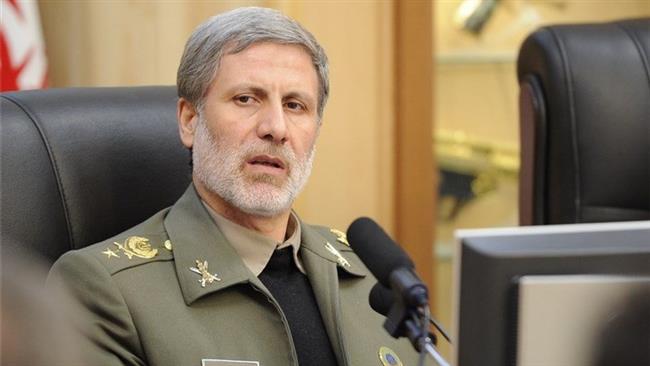
RNA - Briefing a group of lawmakers on his future plans on Saturday, Hatami said that the current situation is special as the enemies have imposed sanctions on Iran’s military field in a bid to weaken it.
“The enemy is stationed in the region, bringing weapons to the region and trying to damage the country’s defensive might, but we have set objectives in our plan to counter the move,” he added.
The Iranian general also hailed achievements made in both missile and defense industry sectors and stressed that this trend should continue.
He further noted that all the Islamic Republic’s capabilities should be used to provide permanent deterrence as well as defensive power and help people live in absolute peace and security.
“The president has issued a strict written order for reinforcing the country’s defensive might while Leader of the Islamic Revolution [Ayatollah Seyyed Ali Khamenei] also has clear plans in that regard,” he said.
“Given these circumstances, we do not look to anybody's permission for reinforcing the country’s defensive power," he pointed out.
'Not enough space for missiles'
Also on Saturday, Brigadier General Hossein Salami, the second-in-command of Iran’s Islamic Revolution Guards Corps (IRGC), said in a live TV program that "the rate of our missile production is so high that we are faced with the problem of space" for storing them.
The military commander ruled out the possibility of a new war in the region as well as calls in the US for inspection of Iran's military sites.
"The Americans lack the power to launch a new war," Salami said, adding "access to our military facilities is one of the dreams that the Americans will take to the grave."
He also touched on recent confrontations between Iranian naval boats and US military vessels in the Persian Gulf, saying American claims of "harassment" by Iran's patrols are a "psychological ruse."
"We defend our territorial integrity with all our power and our intelligence systems observe the presence of any foreign vessel anywhere. If Americans think that we are to stop these activities, they are completely mistaken and it is better for them not to belittle themselves," he said.
"If something happens in the Persian Gulf, the security of the world's energy will be affected in a big way. However, they (the Americans) are partly aware of our military capability, while they know nothing about its invisible part," Salami said.
"A war in the Persian Gulf would be a fluid one that would move far beyond the imagination of the Americans and engage all the areas bearing their interests; it would be drawn toward the Zionist regime and its destruction," he added.
Elsewhere in his remarks, Salami described the Daesh terrorist group a joint product of the US, Britain, Israel and their regional allies.
"Soon, with enormous struggles which are being made, the star of Daesh will be on the wane and their remnants will be purged. However, their harm to Islam has been immense," he said.
On June 7, Daesh gunmen mounted assaults on Iran’s Parliament and the Mausoleum of late Founder of the Islamic Republic Imam Khomeini, leaving 18 people dead and over 50 others wounded.
The IRGC responded with a missile strike, which pummeled Daesh positions in Syria’s eastern Dayr al-Zawr Province, killing more than 170 Takfiri elements and inflicting heavy damage on their weaponry and communication systems.
847/940